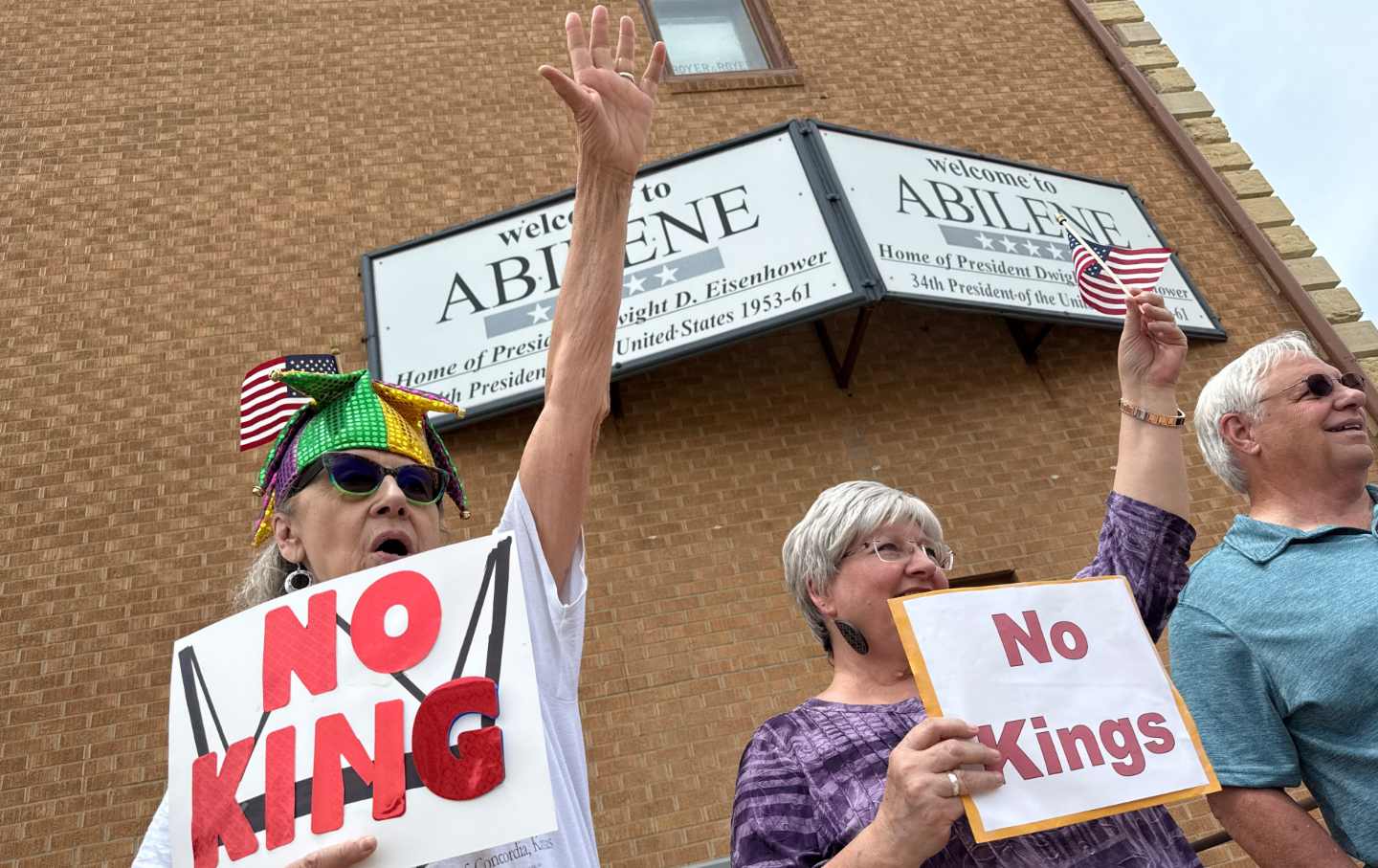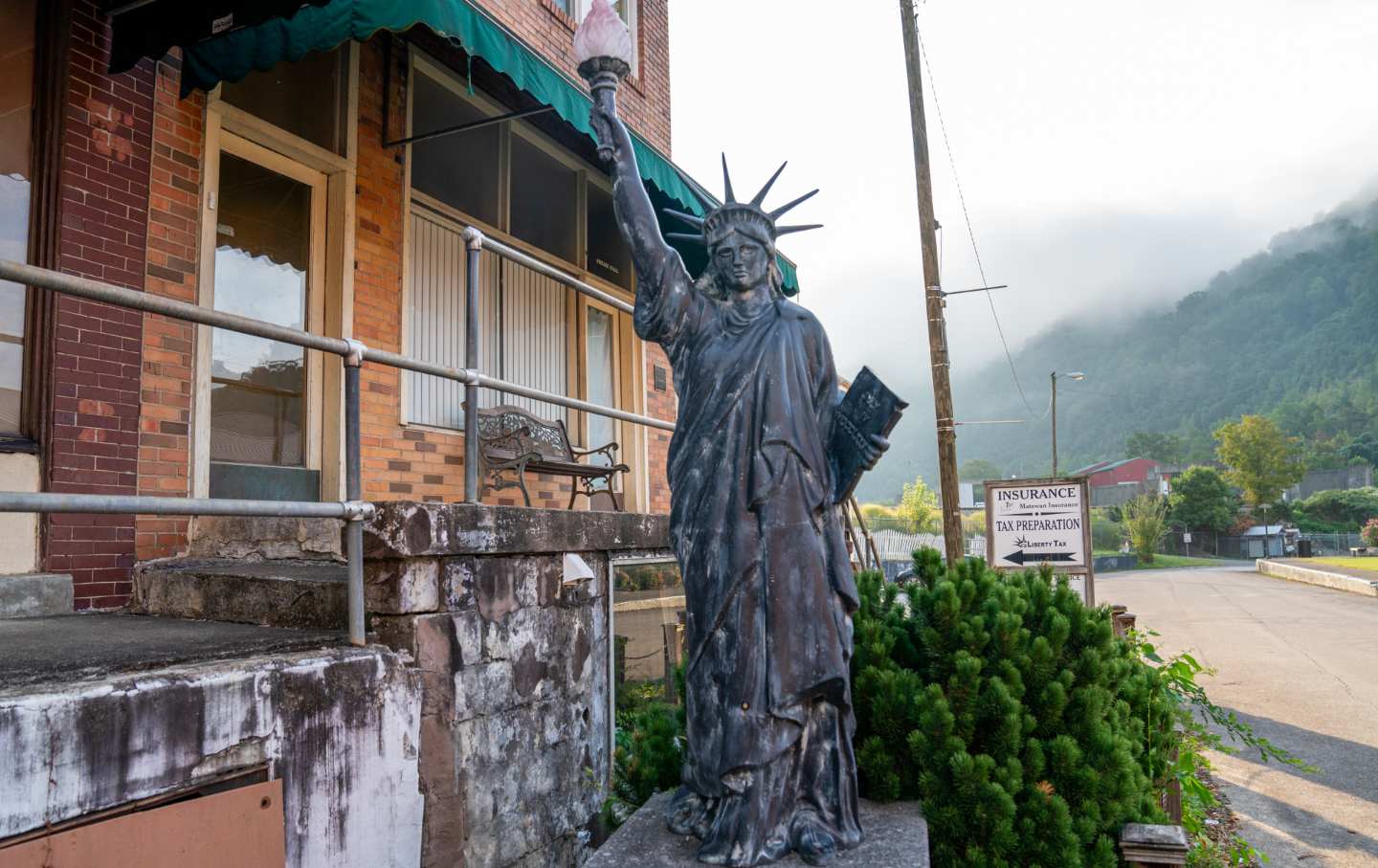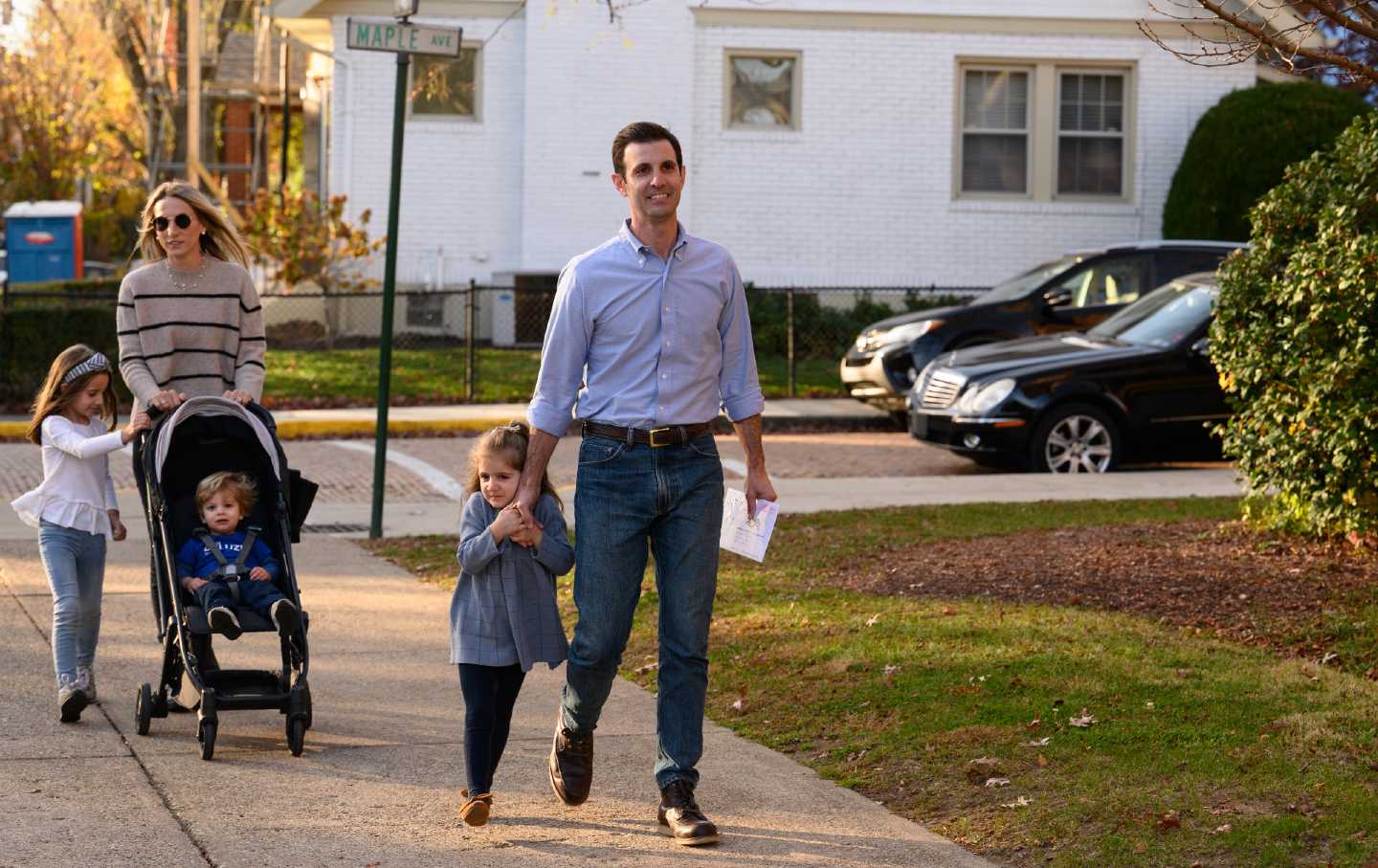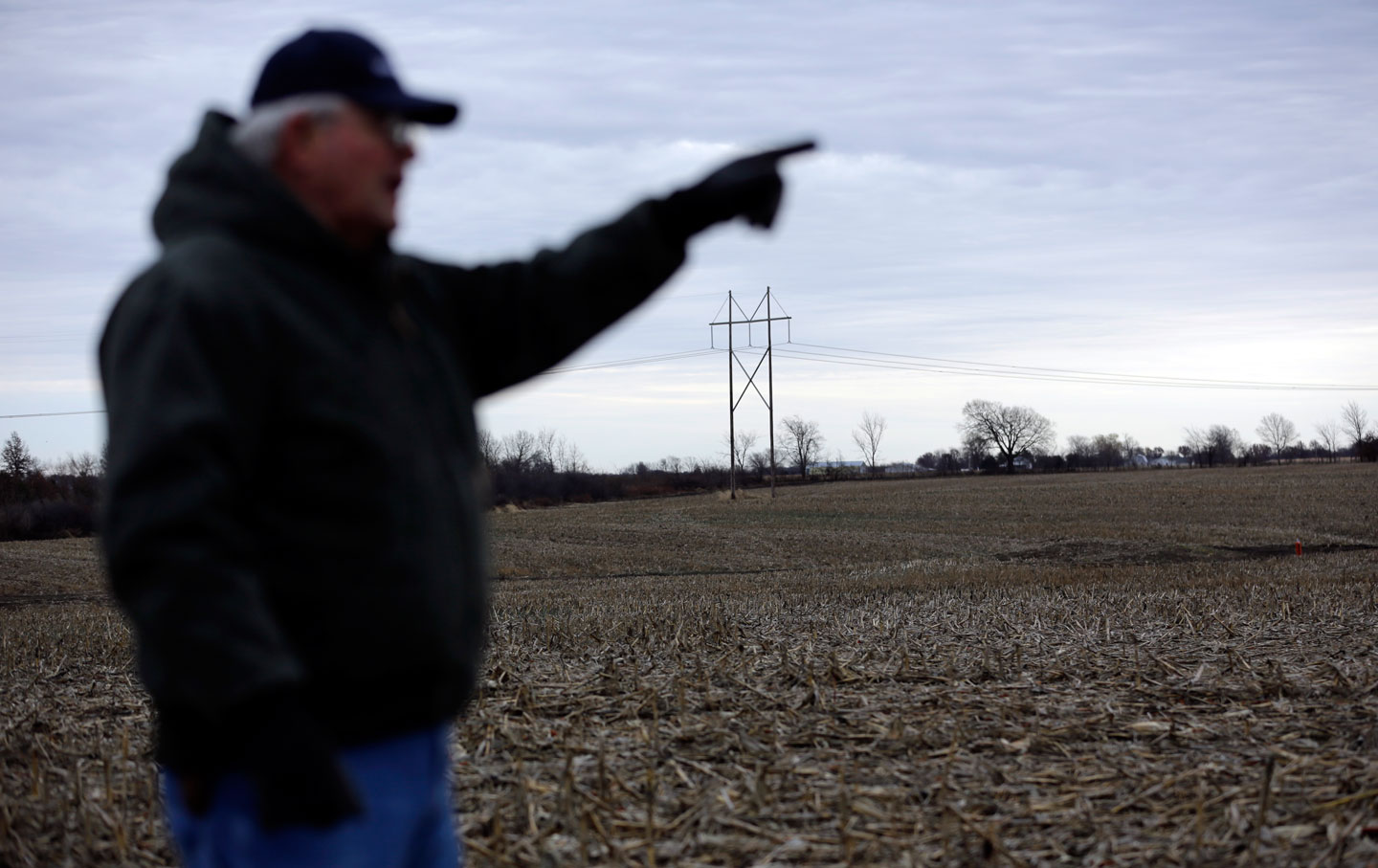The Missing Pieces of the Democrats’ Rural Offer Could Fill a Barnyard
Rural America looms large in the 2024 election. So why is it such a small piece of the Progressive Caucus agenda?


The progressive proposition agenda issued by the Congressional Progressive Caucus is a commendable effort to push the Democratic Party to put people and the planet ahead of corporate control and profits. The proposal includes a call to “end hunger and support farmers and local producers” and to “invest in rural infrastructure, small farms, and break up Big Ag.” This should be welcomed, as should the recommendation to increase funding for rural hospitals. Nevertheless, giving rural Americans just 24 words in the CPC document—out of a total of 1,656—is far from adequate. Indeed, what’s missing could fill a barnyard.
For those of us who believe that fixing our economy and politics requires addressing the root causes of the rural/urban divide, there are many good elements in the CPC agenda. One of the most important is the strong emphasis on fighting corporate power—through stronger antitrust enforcement, as well as specific tactics to roll back the increasingly dominant but largely unregulated dark money from private equity firms flowing through elections. Its call to limit the “fox guarding the henhouse” influence of corporations over federal regulations is critically important as well.
The Progressive Proposition Agenda is also very strongly pro-worker, from its recommendation to enact comprehensive labor law reforms and a national living wage to its calls to cap childcare costs and protect workers during strikes. Such policies are good for workers and communities around the country—including in rural places. In fact, the Rural New Deal has many similar recommendations.
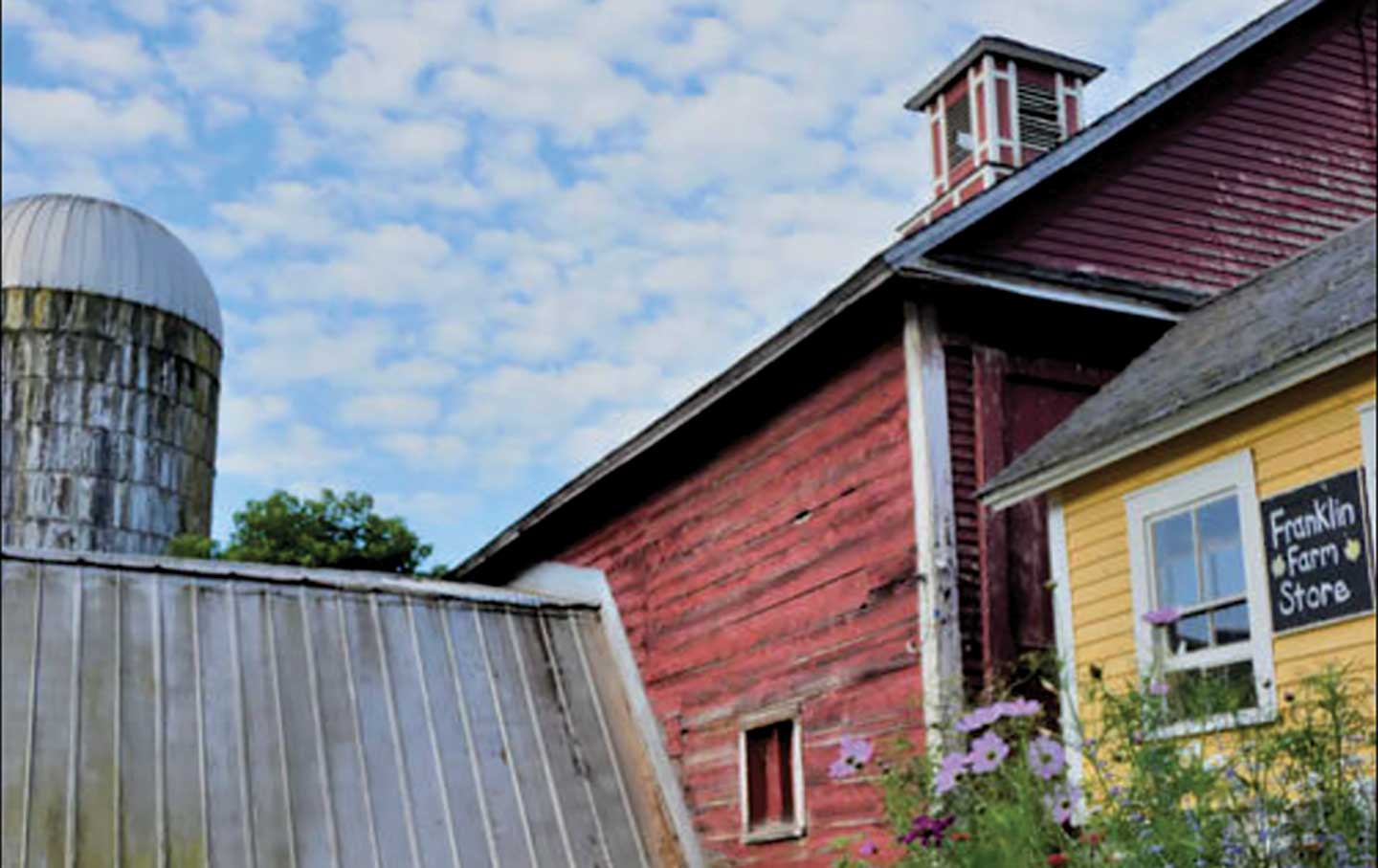
But here is what’s missing: a proactive agenda for building a more just and resilient economy from the bottom up, one that enables people to take control of their lives and meet their own needs. The CPC plan, appropriately, calls for strengthening the safety net, taxing the rich, and using those revenues to make life better for the millions who are struggling. It’s the redistribution agenda with which we progressives are most familiar and comfortable.
There’s much less attention, however, to “pre-distribution” policies—those that help people to help themselves, that enable communities to solve most problems close to home, that build real and enduring wealth for ordinary people. A focus on policies that cultivate self-reliance would help people everywhere but is particularly critical in rural communities. Economically, such policies would help to reverse decades of extraction—not just of dwindling natural resources, but of wealth and people from rural communities. Politically, these policies garner broad support because rural people strongly prefer a hand up to a handout. As a January 2024 survey by government scholars demonstrates, rural people overwhelmingly want the government to “make it possible for us to improve our communities ourselves” rather than impose top-down solutions.
What kinds of federal policies contribute to an economy that builds local wealth, enables community solutions, and promotes self-reliance? Policies that put local people in the driver’s seat, allowing them to adapt programs and use funds based upon their local realities. In my 40 years of rural development experience, I’ve observed that state and federal programs that prioritize local control and local capacity-building garner much broader community support and have more impact over the long term. Equally important are policies that invest in and incentivize the restoration and sustainable use of land and ecological capital. The town of St. Paul, Virginia, for instance, utilized federal resources to rebuild its economy around the restoration of the Clinch River, putting a critical local asset at the center of efforts to move beyond the coal industry.
During a “Rural Communities in Action” gathering at the White House on May 14, Agriculture Secretary Tom Vilsack admitted that the strategy that has dominated US agricultural policy for 50 years, which Nixon Agriculture Secretary Earl Butz dubbed “get big or get out,” was a huge mistake. Moving from an all-of-the-above approach that enabled the corporate dominance of American agriculture, USDA is now emphasizing family farms, investments in regional food systems, and helping farmers and forest landowners adopt soil-building, carbon-sequestering management practices. This long-overdue course correction is very popular among producers: 180,000 farmers managing 250 million acres are projected to sign up in the next five years. And it is exactly what we need to sustain our food system—and help curb climate change.
Finally, a progressive agenda must prioritize policies that promote greater economic diversity and a higher degree of local ownership. This includes simplifying access to grants and loans for smaller, newer businesses; targeting federal procurement dollars to small and minority-owned businesses (in 2023, the federal government purchased $178 billion of goods and services from small businesses—a record amount), and redirecting tax and financial incentives from corporate chains to local independent businesses.
Democracy is indeed on the ballot this November. But for the millions of Americans who believe that the economy and the political system are rigged against them, calls to “save our democracy” fall flat. This includes the persuadable rural voters who will play a critical role in the election, particularly in the battleground states. For progressives working to prevent a MAGA victory, promoting federal policies that help rebuild rural communities while creating a more resilient economy must be a part of that strategy.

